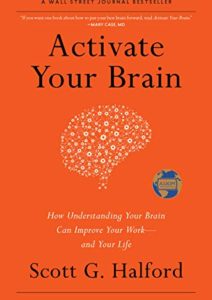While having a high IQ attributes to only 6 percent of work success, having an emotional intelligence contributes to a much higher percentage of work success. In this Expert Insight Interview, Scot Halford discusses emotional intelligence and neuro leadership. Scott Halford is an Emmy award-winning author on emotional intelligence, critical thinking, neuro leadership, and influence, Hall of Fame speaker, and consultant to Fortune 500 executive teams.
The interview discusses:
- What role Emotional Intelligence plays
- Importance of being mentally present in the interaction
- How to build trust with the customers
Role of the Emotional Intelligence
In sales, we sometimes have to pick up the cues that people are communicating to us unconsciously. Communication is not just a verbal part, but a lot of non-verbal cues as well. Emotional intelligence enables us to read those non-verbal cues. Many people would say that emotional intelligence means having common sense, but rather it means knowing how to reason, behave, and bounce back during a crisis. For example, if you are in between two companies and do not know which one to choose because they both have bad reviews, go to see their responses to the bad reviews. Those responses show whether they deal in crisis with integrity and respect for their customers. In sales, the way how you treat customers in the moment of crisis makes a huge difference.
Presence
Nowadays, everybody loves to say how they are busy all the time. But is it busyness for real, or is it just a distraction? The modern world’s biggest distraction is definitely the smartphone. So, when we interact with someone, it is crucial to be mentally present in that interaction. That will make people feel valued and honored, and they will want to do business with you. Even though multitasking is a popular way of doing things, it is not efficient. We cannot efficiently focus on more than one thing at a time, and focusing on people we talk to is necessary to understand their intents and emotions. Thus, paying attention creates a certain level of trust in your clients.
Trust
Another component of trust is to make sure that you do what you promised. Emotional intelligence attributes to 69 percent of the work success, but the rest of the 31 percent goes to reliability. Make sure that you follow through with the people. That will make them look better in the eyes of their bosses, which will make them trust you more. Decision making in B2B sales is an emotional process because it can be career-enhancing or career-limiting. Many companies lose on the great opportunity because a client does not have that level of trust that the company is the right choice to decide to go with it.
Our Host
John is the Amazon bestselling author of Winning the Battle for Sales: Lessons on Closing Every Deal from the World’s Greatest Military Victories and Social Upheaval: How to Win at Social Selling. A globally acknowledged Sales & Marketing thought leader, speaker, and strategist, he has conducted over 1500 video interviews of thought leaders for Sales POP! online sales magazine & YouTube Channel and for audio podcast channels where Sales POP! is rated in the top 2% of most popular shows out of 3,320,580 podcasts globally, ranked by Listen Score. He is CSMO at Pipeliner CRM. In his spare time, John is an avid Martial Artist.










Comments